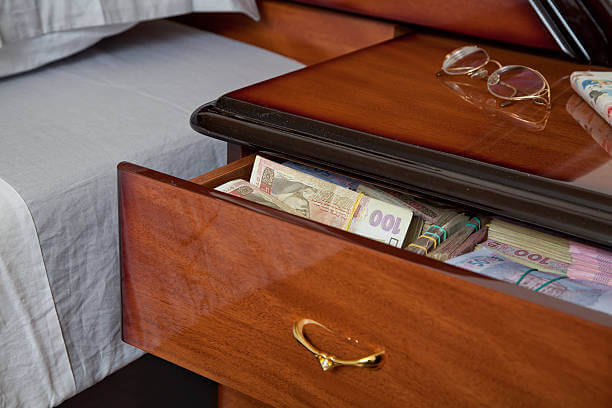When it comes to funerals, one of the most important decisions a family has to make is whether or not they want an open casket viewing. Making this decision can be difficult as each option presents its own unique benefits and drawbacks. As a funeral director, I’ve seen firsthand how families have grappled with this decision and wanted to provide some insight on what sealed vs unsealed caskets mean for those in mourning.
Sealed caskets present families with an opportunity to remember their loved ones without having to confront the harsh reality of death. There is something comforting about being able to keep them at arm’s length while still honoring their memory. On the other hand, there are many advantages that come from choosing an unsealed casket—including allowing friends and family members closure by saying goodbye in person.
No matter which choice you make, know that both options offer meaningful ways to say farewell and honor your loved one’s life. In the following article, we’ll explore these two methods more closely so you can decide which one best suits your needs during this difficult time.
Definition
The casket – a solemn reminder of life’s fragility. It serves as the final resting place for a loved one, whether it be sealed or unsealed. As death is an inevitable part of life, so too must its vessel be strong and dignified. I am here to explain the difference between sealed and unsealed caskets: their construction, purpose, and symbolism.
A sealed casket is crafted from metal or hardwood; this type of casket is hermetically sealed in order to protect the body within from environmental damage such as bacteria and moisture. Sealing also prevents outside elements from entering into the coffin itself. This type of container has been used since ancient times, conveying both reverence and respect towards those who are laid to rest inside them. The sealing process signifies that something precious lies within an eternal farewell between two worlds while protecting what remains undisturbed until Judgment Day arrives.
On the other hand, an unsealed casket allows mourners to see the deceased in his/her natural state before burial takes place. Unlike its counterpart, there are no barriers limiting access to the body; however, unsheltered exposure can lead to deterioration over time due to external factors such as air and temperature fluctuations. For some families, viewing the decedent provides closure through visual remembrance; yet regardless of choice when it comes to selecting either a sealed or unsealed casket, all should know that paying tribute is paramount during any funeral ceremony honoring someone’s memory. Now let us move on to types of caskets…
Types Of Caskets
When it comes to choosing the right casket, there are two distinct types: sealed and unsealed. Sealed caskets protect the deceased from outside elements while an unsealed casket allows for viewing of the body. Each type has their own unique benefits that should be considered when making a decision on which is best for your loved one.
The following are some features of each type of casket:
*Sealed Caskets:
- Construction – typically made with heavier gauge metal or hardwood and designed to provide maximum protection against rusting and decay
- Appearance – usually have no visible hardware, since they are completely closed
*Unsealed Caskets:
- Construction – constructed of lighter materials such as cloth-covered wood, fiberboard, cardboard, or particle board and may contain decorative hardware
- Appearance – often feature handles or other artistically crafted designs.
It’s important to note that both sealed and unsealed caskets come in a variety of styles, sizes, shapes, colors and finishes so you can choose something more suitable to reflect your loved ones personality. Regardless of what type you select though, all caskets offer families peace of mind knowing their loved one will be taken care off until laid to rest.
With this knowledge in hand about the different types of caskets available, we’ll now move onto discussing the specific benefits associated with sealed options.
Benefits Of Sealed Caskets
Sealing a casket is like drawing a veil of protection around the deceased. It’s as if you are wrapping them up in your arms, protecting them from the outside world and preserving their memory for generations to come. Sealed caskets have several advantages that make them an attractive option for loved ones seeking closure and peace of mind.
First, sealed caskets help protect the body from decomposition or other deteriorating factors. This prevents any unpleasant odors or sights during visitation services or funeral ceremonies. Additionally, sealing helps prevent water damage due to rain or sprinkler systems on cemetery grounds. Finally, keeping the lid locked serves as a physical reminder that death has taken place and allows family members more time to emotionally process their loss before saying goodbye forever.
The benefits of sealed caskets offer both tangible and intangible rewards when it comes to honoring the life of a loved one who has passed away. With these protective measures in place, families can begin healing knowing they’ve done everything possible to preserve their cherished memories with dignity and respect. As we move forward, let us consider now some of the drawbacks associated with using this type of burial container…
Disadvantages Of Sealed Caskets
Sealed caskets come with several important drawbacks. Firstly, they are more expensive than unsealed caskets. This is primarily due to the fact that construction materials used for sealed caskets must be strong enough to withstand burial conditions over a long period of time. Additionally, sealed caskets limit visitation opportunities and can make it difficult for families to say their final farewells. Sealing the casket also prevents family members from placing keepsakes or other mementos inside the coffin with their loved one as an expression of remembrance.
Finally, sealing a casket means that any post-burial services will require additional costs such as professional opening and resealing. For these reasons, many people opt instead to purchase unsealed caskets when making funeral arrangements. The next section will explore some of the benefits associated with choosing an unsealed casket for your loved ones’ memorial service. With this in mind, let’s take a closer look at why an unsealed option might be best for you and your family during this difficult time.
Benefits Of Unsealed Caskets
Unsealed caskets offer a number of advantages that can be beneficial for individuals and their families. Firstly, they provide an opportunity to view the deceased in their natural state. This is important for those who want to say goodbye one last time or pay tribute to their loved ones in a more meaningful way. Secondly, unsealed caskets are often less expensive than sealed varieties since there’s no need to buy additional materials like sealants or adhesives. Finally, these types of burial arrangements tend to be faster and easier to set up compared with other options as well. With all these benefits taken into consideration, it’s easy to see why many people prefer unsealed caskets over sealed ones. And now turning our attention towards the disadvantages…
Disadvantages Of Unsealed Caskets
Despite the many benefits of an unsealed casket, there are also some drawbacks to consider. An open-air funeral service may not be suitable for certain religions or families with specific burial customs that mandate a closed-casket service. Additionally, it can be difficult to keep up appearances when dealing with decomposition and other physical aspects of death. As such, an unsealed casket is often more costly than one that’s sealed shut due to additional labor required in its upkeep.
Furthermore, having an unclosed lid on the coffin means increased exposure to bacteria and pests which could potentially contaminate the remains inside. This could create health risks for those present at the services as well as any visitors who come into contact with the body afterwards. It’s important to carefully weigh these potential downsides before deciding upon whether or not to purchase an unsealed casket.
Unsealed caskets pose unique difficulties but they don’t automatically mean increased cost or risk – careful consideration should always precede making a decision either way. With this in mind, let us now turn our attention towards comparing costs between sealed and unsealed coffins so you can make an informed choice about what will work best for your loved one’s final resting place.
Cost Comparison
When it comes to cost, the difference between sealed and unsealed caskets is quite small. Sealed caskets usually cost around 10-20% more than their unsealed counterparts. This may seem like a lot, but when you consider that most funerals are already expensive, it’s really not too much of an increase in price. So if budget is your main concern, then opting for an unsealed casket may be the better choice.
On the other hand, there are some additional costs associated with sealing a casket which should also be taken into account. For example, extra time will need to be spent by funeral directors on ensuring that the sealant has been properly applied and that no air can escape from the casket. There may also be added fees for disposal or recycling of any materials used in the sealing process.
Ultimately, both sealed and unsealed caskets have their own advantages and disadvantages depending on individual needs and preferences. It’s important to weigh all factors carefully before making a decision as to which type of casket would best suit your loved one’s wishes. With this in mind, let us now look at what legal requirements must be considered when choosing either option.
Legal Requirements
When it comes to legal requirements, sealed caskets and unsealed caskets differ significantly. Sealed caskets are the most commonly used option for funerals, as they ensure that the deceased’s body is protected from any external elements. Unsealed caskets, on the other hand, allow family members or friends of the deceased to view their loved one during a visitation period prior to burial.
In terms of legal restrictions, there are some states where only sealed casket burials are allowed due to health regulations. In addition, if an autopsy has been performed on the deceased individual then a sealed coffin must be used in order to protect against exposure of bodily fluids. Furthermore, embalming regulations may require that all bodies buried in public grounds be stored in sealed containers.
It’s important for families and funeral directors alike to understand these differences between sealed and unsealed coffins when making arrangements for a funeral service. Accurately understanding state regulations can help make sure the necessary steps have been taken for a proper burial according to those laws. This knowledge will provide peace of mind knowing everything possible was done with respect and dignity when laying your loved one to rest.
Conclusion
When it comes to choosing a casket for your loved one, there are many factors to consider. As a funeral director, I understand the importance of this decision and am here to help you explore both sealed and unsealed caskets so that you can make an informed choice.
Sealed caskets have their advantages such as protection from the elements and preserving memories through pictures or messages on the exterior. However, they also bring with them certain disadvantages like limited flexibility if additional items need to be added after burial, higher costs compared to unsealed options and possible legal requirements in some areas.
On the flip side, unsealed caskets come with more flexibility when adding personal touches but may not offer adequate protection against harsh weather conditions. They may also require special care during transport or storage due to their open nature, which could add extra cost down the line.
In the end, deciding between sealed versus unsealed is up to each individual’s preferences and needs no matter what route you choose to go down “the road less traveled will still lead you home safely. With my years of experience in this field, I’m confident that together we can find just the right solution to honor your loved one’s memory in a meaningful way.

![How To Make Casket Handles [Step By Step Guide]](https://dacoffin.com/wp-content/uploads/2023/03/How-To-Make-Casket-Handles.jpg)
